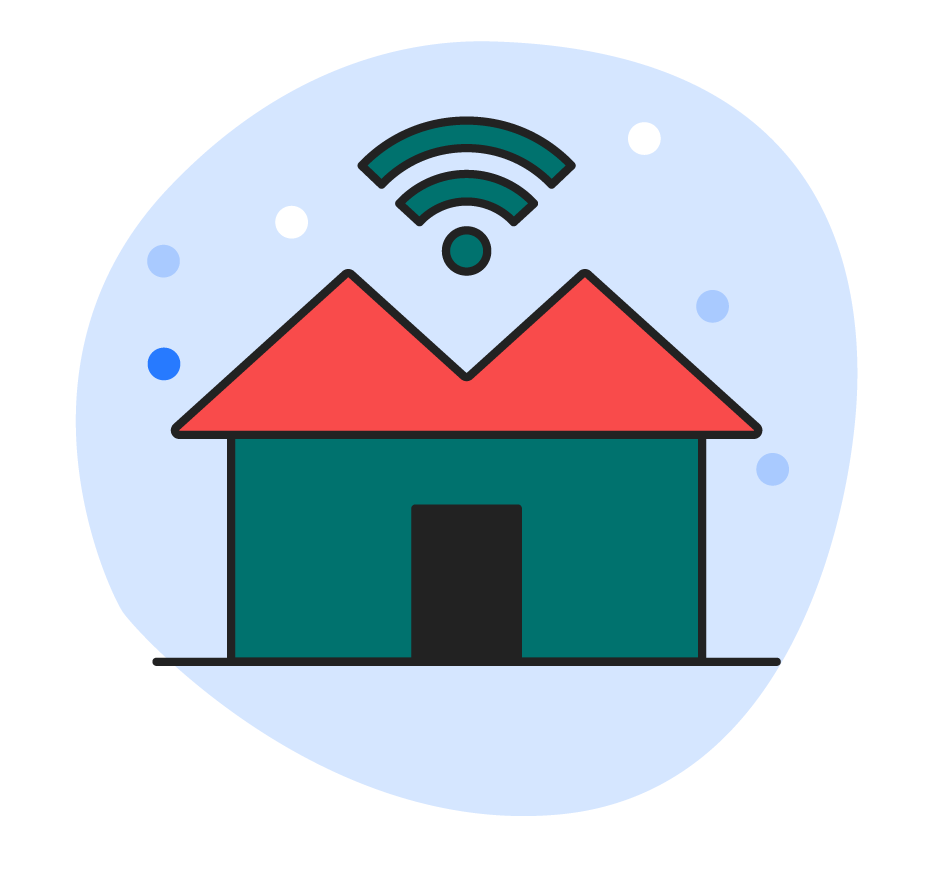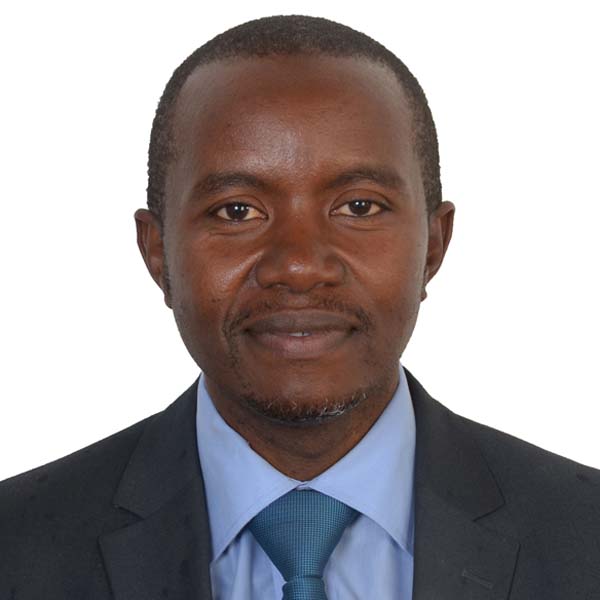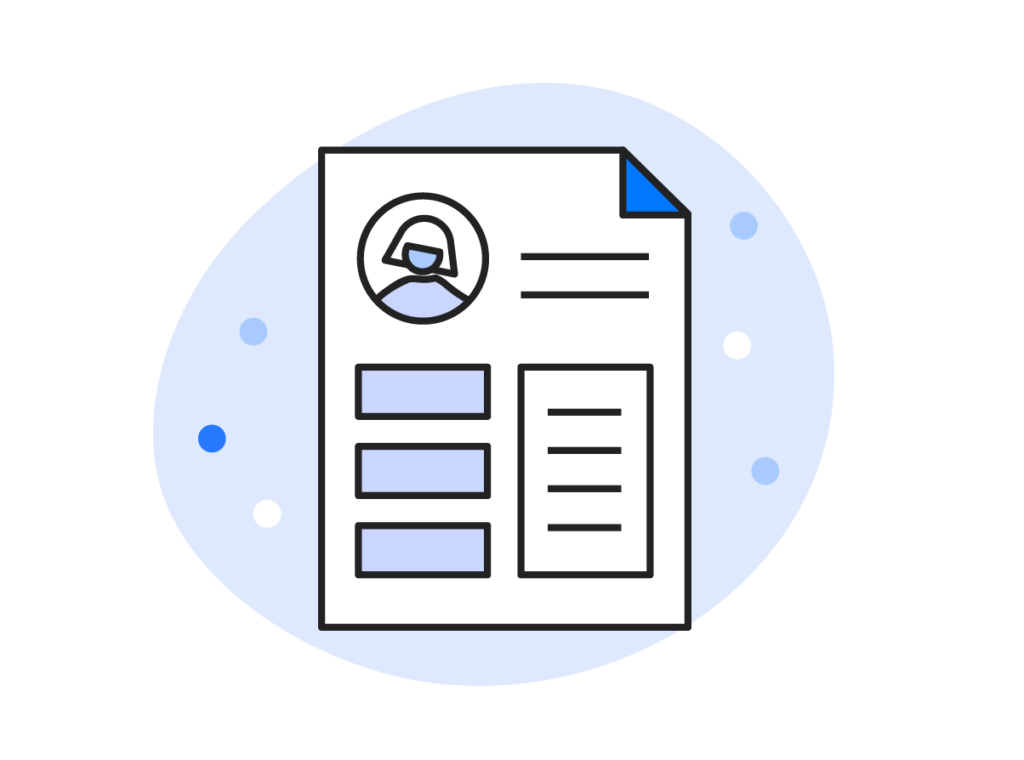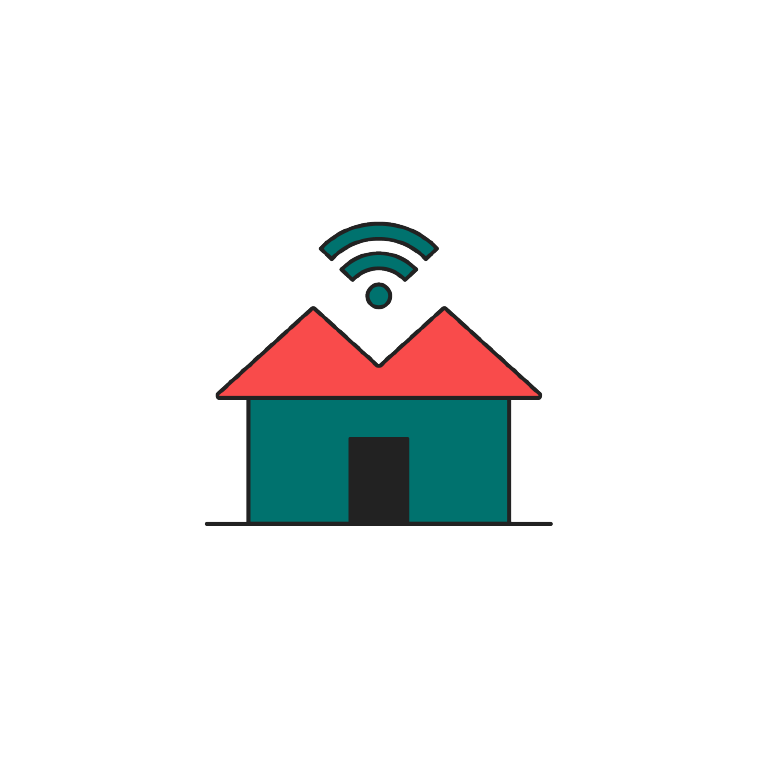
Kenya
19,700
Connected schools
23,300
Unconnected schools
The National Broadband Strategy sets a goal of reaching 100% connectivity of all schools with 10Mbps by 2030, with 50% coverage of primary schools by 2022. The Giga initiative will prioritize the public primary schools.
Number of connected & unconnected schools: Project Connect Mapping and Modeling Data, 2020
With most of the population now covered, addressing the usage gap is key to bridging the digital divide.

Through Government programs and private sector expansion, Kenya is moving towards national coverage and digitally-enabled education
Expanding National Coverage
The Government of Kenya has made significant investments in the National Backbone, with 5,500 km of fiber cable laid, connecting all the 47 counties. MNOs have also invested in coverage through network investment, including the deployment of 3G and 4G base stations and fiber alongside innovative technology solutions such as Project Loon.

Focusing on Competencies Required for Work
Kenya’s Basic Education Framework 2017 outlines the competency-based curriculum (CBC) strategy. The CBC focuses on the acquisition of skills and competencies useful for solving real-life problems. Digital literacy is one of the strategic pillars within the framework, aimed at preparing learners with skills required to participate in the growing the digital economy.
Distributing Devices through DigiSchools
Kenya’s DigiSchools Program aims to equip pupils with the relevant digital skills needed in today’s digital world. To date, 1,148,160 devices have been distributed to 21,232 schools with additional investment on digital content, teacher training, and electricity supply.
Giga has been working with Kenya as one of Giga’s “Accelerate” countries. Through Giga, Kenya has the potential to support existing device distribution with high-quality internet connectivity, working with the private sector to bring down prices. Some of Giga’s priority areas for collaboration in Kenya include:
Connecting 1,000 schools using a variety of connectivity technologies to achieve quick wins that extend connectivity during COVID-19 through Giga Accelerate
Connecting an additional 23,300 schools by supporting concessional financing opportunities for upfront investment and ongoing fees
Providing support to develop local and regionally relevant digital solutions, especially digital public goods
From schools to communities
Schools are often the centre of communities. Giga hopes to explore sustainable models to use the school as a hub to connect people in the local community. Connecting learners will allow students and young people to take advantage of the digital learning content developed by the Kenya Institute of Curriculum Development and other ecosystem players during COVID-19 and beyond.

